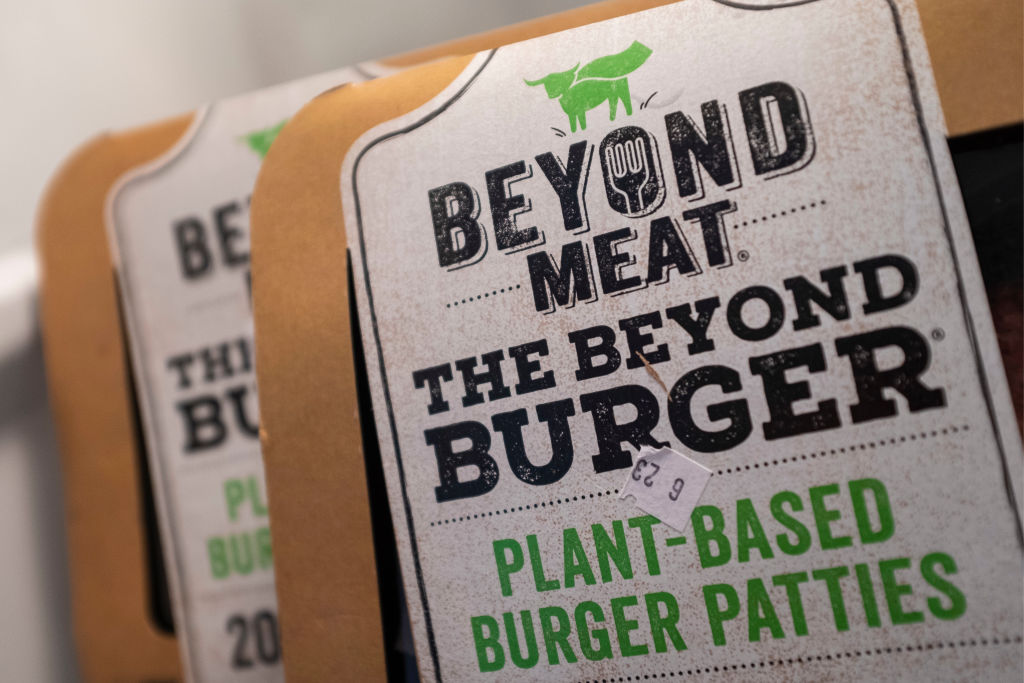Believe it or not, the vegans might have the answer to rescuing our ailing economy

Meat-free alternatives have been stunted by cumbersome regulations in the UK, while America is free to surge ahead with an industry which could create thousands of jobs, writes Jeremy Coller
If Rishi Sunak is serious about making the UK a science superpower then a very good place to start is with the bacon roll you may well be eating while you read the newspaper this morning.
Because, almost unnoticed by many in government, British scientists and businesses have quietly been laying down extremely strong foundations in alternative proteins – the delicious, nutritious and increasingly “meat-like” meat-free products you can now enjoy everywhere from high-end French restaurants to your local Wetherspoons.
One of the most familiar brands, Quorn, is already a great British success story: created in Buckinghamshire in 1985, it now exports across Europe and around the world, providing jobs for almost 900 people here in the UK.
There’s no reason we can’t repeat that success again and again. The UK is the home of breakthroughs and pioneers in all aspects of the alternative protein industry, both the products themselves and the know-how required to make them.
I know it sounds like it, but this isn’t about the ethics of eating meat. The Alternative Proteins Association (APA) wasn’t established to tell people what to have for dinner, but to provide a voice for an industry that has massive potential to boost both the UK’s economic growth and our food security.
Get this right and we could see thousands of new jobs created. Thousands more protected in farming. A whole new export industry. And vastly reduced reliance on the global supply chains that, as anyone who has tried to buy a tomato lately can tell you, are not as reliable as we would like.
It speaks volumes that Singapore – known less as an international hotbed of liberal woke-ism than as the home of a hugely successful innovation-driven economy – has swiftly established itself as a world leader in this field.
It’s just one of the nations that has recognised the potential. Israel has really got behind its alternative protein industries. And in the US, the FDA recently gave its first-ever green light to a cultivated meat product, “chicken” grown from a handful of cells rather than a bird.
That’s not the only extra choice available to US consumers. For half a decade, Americans have been enjoying the “bleeding” plant-based Impossible Burger – you can even buy them at Disney World. Yet while our transatlantic cousins tuck in, the burger is banned from the UK by anachronistic retained EU legislation on GM-derived ingredients.
That American families are free to make their own decisions about what they eat isn’t down to their food regulators cutting corners or taking risks. Nobody in the industry wants that. The FDA have simply updated the rules to reflect what’s possible in food tech in the 21st century.
Here in the UK the regulations have, for years, allowed us to eat cheese made with artificial rennet created using the exact same technology. But for burgers and bangers the bureaucrats say “no”. And so instead of contributing to the economic growth we need, our industry is being held back by rules that were drawn up when GM science was in its infancy and the technology to create cultivated meat didn’t even exist.
Producers don’t want giant cheques, they just want regulations that encourage scientific innovation rather than stifling it; clarity on existing rules; a level playing field on taxation; updated regulation on everything from labelling to GMOs to reflect what’s possible in the 21st century; a world-leading “sandbox” where producers and consumers can safely test new products; and so on.
The costs are tiny, but the potential benefits are enormous. Growth in the global alternative protein market shows no sign of stopping. Later this year the UN’s Food & Agriculture Organisation will set out its own roadmap to a more sustainable food system, giving investors the certainty they need to really get behind alternative proteins. This is a future that’s coming; the question is whether the UK wants to be a leader or a follower.